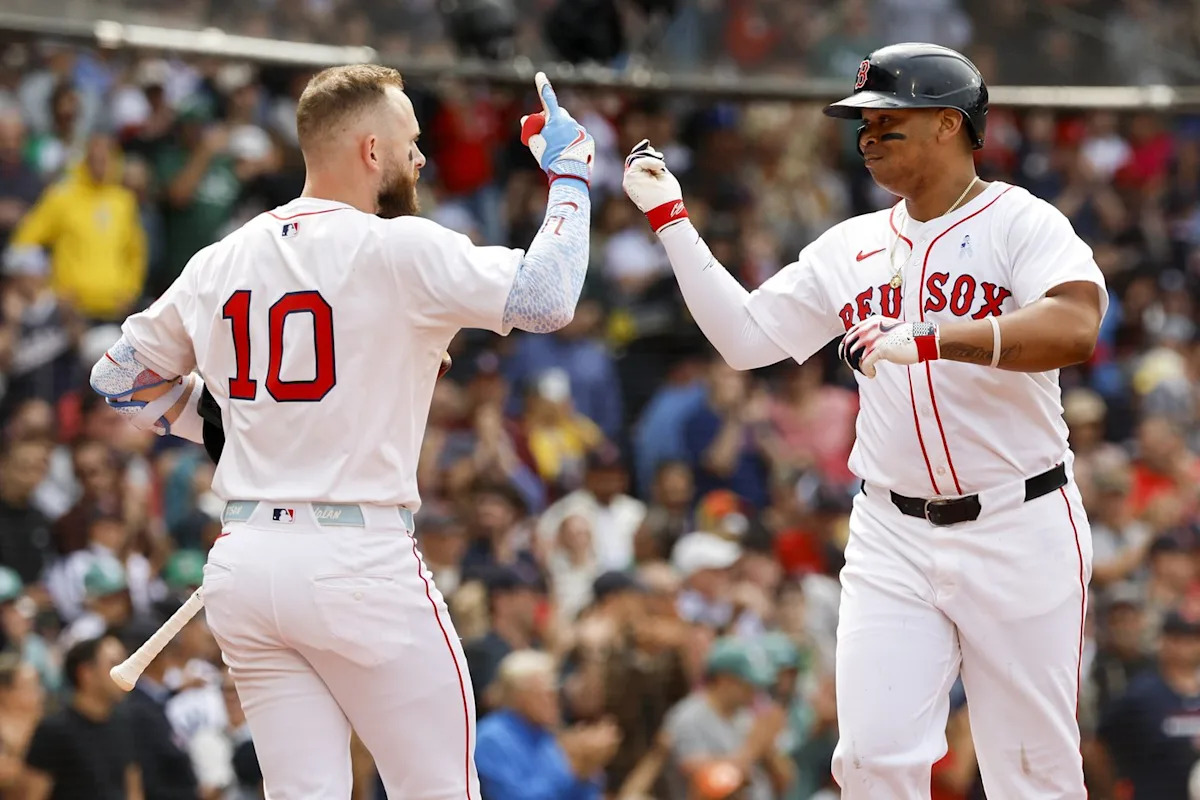In a stunning move that has left baseball fans abuzz, the Boston Red Sox traded their star third baseman Rafael Devers to the San Francisco Giants in a blockbuster deal this past Sunday. This trade marks a significant shift in the dynamics of Major League Baseball and raises many questions about the future of both teams involved.
Rafael Devers, 28, is recognized as one of the most formidable hitters in baseball today. With a current batting average of .272, he has hit 15 home runs and driven in 58 RBIs over 73 games this season. His performance was highlighted by a solo home run during the Red Sox’s recent victory against the New York Yankees, showcasing his enduring talent on the field.
Despite signing a lucrative 10-year, $313.5 million contract with the Red Sox in January 2023, Devers’ relationship with the organization began to show cracks when the team brought in third baseman Alex Bregman during spring training. Competition for positions and management decisions often complicate player relationships, and in this case, it appears Devers felt underutilized and perhaps undervalued.
Devers expressed his commitment to the team and insisted he should remain at third base, even as the team sought to explore his versatility by asking him to play first base after Triston Casas suffered a season-ending knee injury. In a display of candor, Devers suggested that the front office “should do their jobs” by seeking external help rather than shifting him around the diamond.
The Red Sox’s leadership quickly flew to Kansas City for a meeting with Devers and manager Alex Cora, signaling the urgency and importance of addressing the situation. However, the tension surrounding his position on the team evidently lingered, prompting the eventual trade.
As part of the trade deal, the Red Sox received promising talent in return, including pitcher Jordan Hicks and left-hander Kyle Harrison. These acquisitions aim to bolster the Red Sox’s pitching lineup, which has been a concern for fans and analysts alike.
Devers has a rich history with the Red Sox, having joined the team as an international free agent in August 2013. He made a significant impact, making his MLB debut at just 20 years old on July 25, 2017. His contributions helped lead the Red Sox to victory in the 2018 World Series, and he has led the team in RBIs for five consecutive seasons from 2020 to 2024. Throughout his career, Devers has consistently been a top performer, finishing in the top 20 for AL MVP voting five times.
The Red Sox have a lengthy history of trading away All-Star talent. This trade echoes the earlier departure of Mookie Betts, who was dealt to the Los Angeles Dodgers before the 2020 season—only a year after winning the AL MVP and leading Boston to extraordinary success. The pattern raises concerns for fans about the Red Sox’s long-term vision and the intent behind moving key players.
As of now, the Red Sox have improved their record to 37-36 following a three-game sweep against the Yankees, yet they find themselves languishing in fourth place in the AL East, trailing the division-leading Yankees by a daunting 6 ½ games. This context adds weight to the trade, as management appears to be attempting to recalibrate and reimagine their roster in hopes of competing effectively in a challenging division.
Looking ahead, Devers will undoubtedly make an impact in San Francisco. His powerful bat and strong work ethic are expected to resonate well with his new team, contributing to the Giants’ quest for postseason success. For Red Sox fans, however, the loss of such a beloved player is bittersweet. While they acknowledge the talent coming in, the transition will take time, and the ramifications of this trade will be closely watched in the coming seasons.
On a broader scale, this trade serves as a poignant reminder of the complexities of professional sports, where business decisions can heavily influence player careers and team dynamics. As organizations like the Red Sox and Giants aim for competitive balance, fans can only hope these moves lead to sustained success rather than temporary fixes.
In conclusion, the trade of Rafael Devers signals a pivotal moment for both the Boston Red Sox and the San Francisco Giants. While Red Sox management looks to reshape their roster, Devers embarks on a new chapter in his career on the West Coast. As the 2023 MLB season progresses, all eyes will be on Devers and the impacts of this high-stakes trade.
Source link










